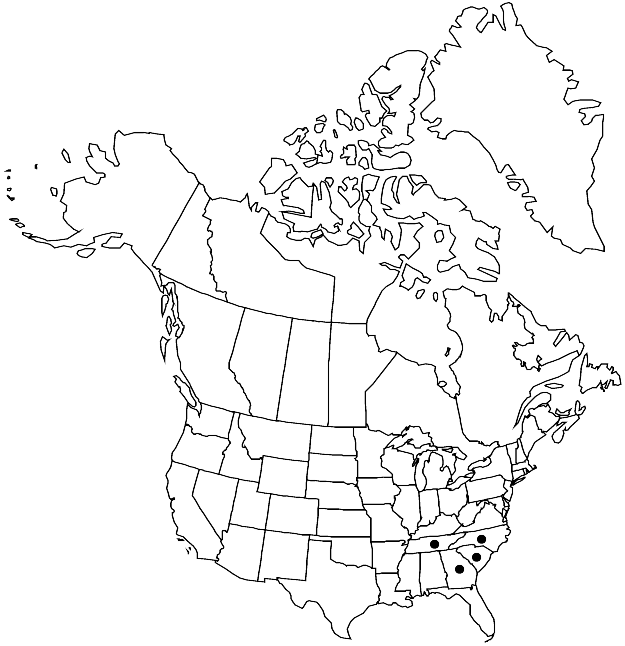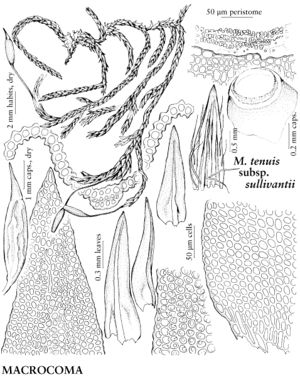familyOrthotrichaceae
genusMacrocoma
speciesMacrocoma tenuis
subspeciesMacrocoma tenuis subsp. sullivantii
Macrocoma tenuis subsp. sullivantii
Bryologist 83: 413. 1981.
Illustrated
Basionym: Macromitrium sullivantii Bot. Zeitung (Berlin) 20: 361. 1862
Treatment appears in FNA Volume 28. Treatment on page 43.
Branch leaves carinate, 0.7–1.2 mm; margins ± plane; costa prominent; laminal cells to 22 µm; distal cells bulging. Spores 33–42 µm.
Habitat: Dry mountain tops and slopes of southern Blue Ridge escarpment, trunks of Juniperus, Pinus, and Quercus
Elevation: moderate elevations
Distribution
Loading map...

Ga., N.C., S.C., Tenn., Mexico, West Indies, Central America, South America, Asia (China, Japan, Korea, Taiwan).
Discussion
Subspecies sullivantii differs from other taxa in Orthotrichaceae by its slender, creeping stems with erect branches. The leaves are erect-appressed, and the basal laminal cells are rounded-quadrate. Subspecies sullivantii is closely related to a Mexican species, Macrocoma orthotrichoides (Raddi) Wijk & Margadant, which differs in having a peristome and sparsely hairy calyptra.
Selected References
None.
Lower Taxa
None.
